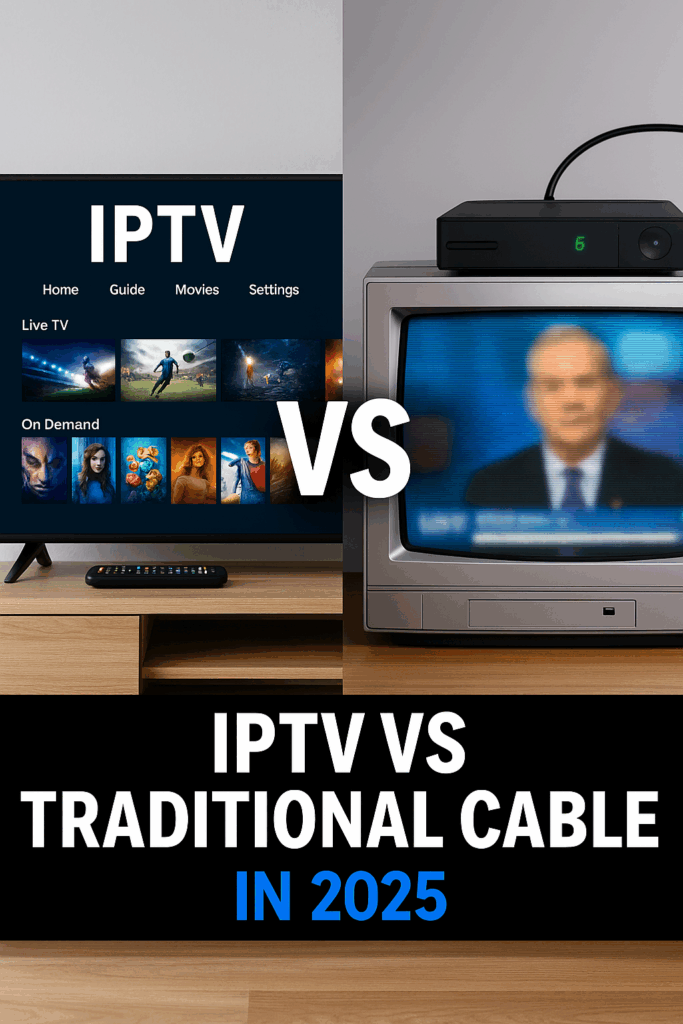
In the digital age, how we consume entertainment is evolving at a rapid pace. One of the most significant changes is the shift from traditional cable TV to IPTV (Internet Protocol Television). In 2025, this migration is accelerating as viewers demand more flexibility, better pricing, and higher content quality. But what exactly makes IPTV more attractive than traditional cable? Let’s dive in.
What Is IPTV?
IPTV delivers television content via the internet instead of satellite or cable networks. It uses your broadband connection to stream live channels, on-demand shows, movies, and even radio, all with greater control over how and when you watch.
Key Differences Between IPTV and Cable
| Feature | IPTV | Traditional Cable |
|---|---|---|
| Delivery Method | Via Internet | Via Coaxial Cable |
| Content Control | On-demand, time-shifted, customizable | Fixed programming schedules |
| Device Compatibility | Works on smart TVs, phones, tablets, etc. | Requires cable box |
| Cost Structure | Flexible subscription tiers | Often high monthly fees |
| User Experience | Personalized interfaces & features | Limited interactivity |
Why People Are Switching to IPTV in 2025
1. Freedom and Flexibility
Unlike cable, IPTV allows viewers to choose what they want to watch and when. Whether it’s binge-watching a series or pausing a live event, IPTV puts control in your hands.
2. Cost Efficiency
In 2025, cable prices remain high while IPTV providers offer competitive plans starting from as little as $10/month. Users can even pay only for the content they consume.
3. Global Access
IPTV services are not restricted by geography. Whether you’re traveling or living abroad, IPTV ensures uninterrupted access to your favorite content worldwide.
4. No More Hardware Hassles
No more bulky cable boxes or messy wiring. IPTV works via apps, browsers, or dedicated Android/IPTV boxes.
5. High-Quality Streaming
Most IPTV services now offer Full HD and even 4K streams, outclassing many cable providers still stuck in SD or limited HD resolutions.
Are There Any Drawbacks?
While IPTV offers many benefits, it does require a stable internet connection. Poor bandwidth can affect stream quality. Some free IPTV services may also host pirated content, leading to legal issues. Always choose a legal and reputable IPTV provider.
SEO Tip: How to Choose the Right IPTV Provider
Here’s what to look for in 2025:
- ✅ Legal licensing and transparency
- ✅ Broad channel selection
- ✅ VOD & series library
- ✅ Reliable uptime and support
- ✅ App and device compatibility
Use search terms like “Best legal IPTV 2025” or “Top IPTV services with VOD” to help readers find quality providers.
Conclusion
The shift from traditional cable to IPTV is not just a trend — it’s the future of entertainment. With lower costs, greater flexibility, and superior technology, IPTV is becoming the go-to solution for modern viewers. In 2025, the question isn’t if you should switch — it’s why haven’t you already?
